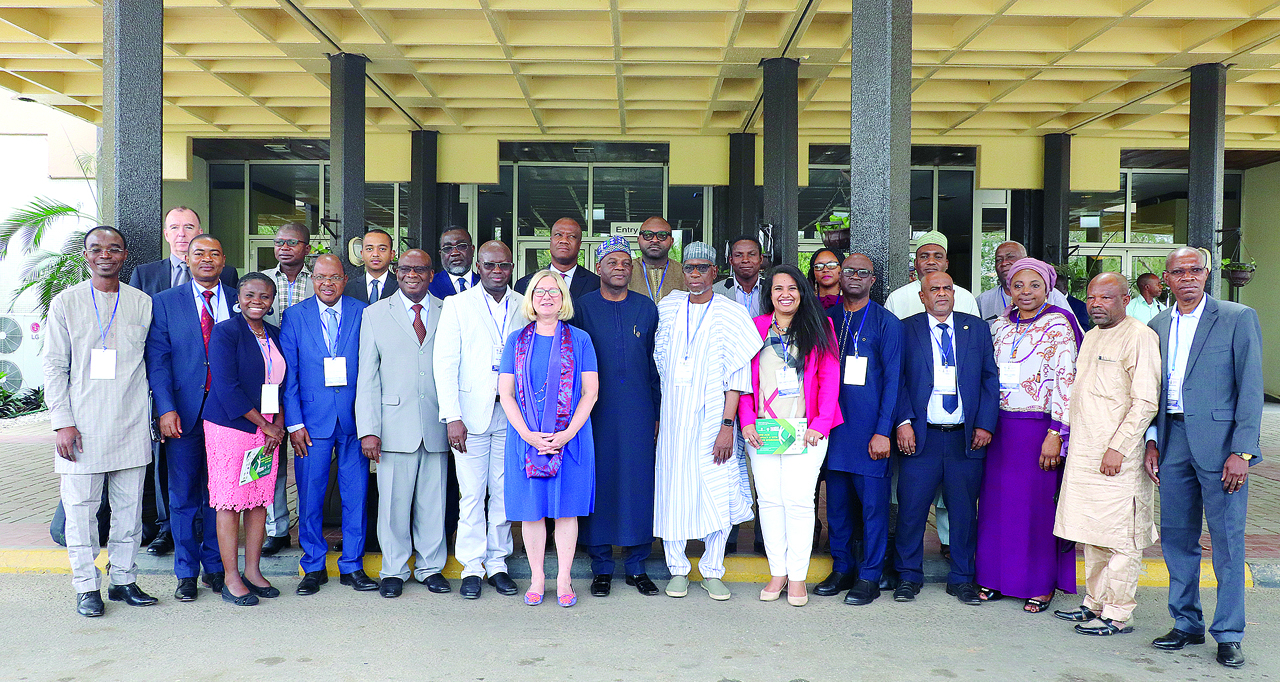
The occasion was the 12th Africa Centres of Excellence (ACE I) and third Africa Centres of Excellence for Development Impact (ACE Impact) project workshop held in Abuja.
Initiated in 2014 with 22 centres of excellence in nine west and central African countries, the ACE I project was aimed at promoting regional specialisation among participating universities in areas that address specific common regional development challenges.
The ACE project is a World Bank initiative, in collaboration with governments of participating countries to support higher education institutions in specialising in Science, Technology, Engineering and Mathematics (STEM), Agriculture, and Health.
It is the first World Bank project aimed at the capacity building of higher education institutions in Africa.
It involved countries like Benin, Burkina Faso, Cameroon, Côte d’Ivoire, Gambia, Ghana, Nigeria, Senegal and Togo.
The second phase was launched in East and Southern Africa with 24 centres across Ethiopia, Kenya, Malawi, Mozambique, Rwanda, Tanzania, Uganda and Zambia.
Based on the initial successes, the World Bank and the French Development Agency (AFD), in collaboration with the African governments, launched the ACE Impact Project in 2018 to strengthen postgraduate training and applied research in existing fields and support new fields that are essential for Africa’s economic growth.
Executive secretary of the NUC, Prof Abubakar Rasheed in his remarks at the workshop said the ACE I centres have met most of the disbursement linked indicators (DLIs), citing the enrolment of regional students from the west and central African countries into the Nigerian university system and stressed the need to consolidate on the successes.
Besides, Prof Rasheed stated that the ACE project has contributed to the production of high-level skilled manpower in specialised areas, while also encouraging both institutional and private sector collaborations at national and international levels; among other things.
Prof Rasheed however listed some of the challenges to include the late commencement of the project, hiccups in project implementation due to the enforcement of the Treasury Single Account (TSA), with the associated delay in processing payments, security challenges, strikes and irregular academic calendar amongst others.
On his part, minister of state for education, Chukwuemeka Nwajiuba who expressed satisfaction with the achievements of the result-based ACE project in the country.
“I am also impressed with the reports that the ACE Project has encouraged internationalisation of higher education in Africa, with the enrolment of regional students in the various centres of excellence.”
“It is gratifying to note that the Federal Government of Nigeria, through the NUC, allowed all Nigerian universities, irrespective of proprietorship, to participate in the ACE Project, since they all supply human resources to the same labour market. This goes to show that excellence is our priority. The reports we are getting justifies that decision, as all the centres in public and private universities have given very good accounts of themselves.”
While commending the Africa Centre of Excellence in Genomics of Infectious Diseases (ACEGID) at the Redeemer’s University for its major role in the containment of the spread of the Ebola Virus in Nigeria in 2014, Nwajiuba said, “I am drawing attention to this case because we are again confronted with another killer virus, the Coronavirus and I am confident that ACEGID is equal to the task and would rise to the occasion. That is what the ACE Project is all about, addressing common regional challenges and strengthening institutional capacities to deliver high-quality training and applied research.”
He announced that the Federal Government of Nigeria, through the ACE experience, is revolutionising higher education in terms of research and postgraduate training. “The government is therefore positioned to adopt the result-based approach of the ACE Project. I would also like to inform you of the government’s intention to adopt the Disbursement Linked Indicator (DLI) method of the ACE Project to reward excellence in the Nigerian University System (NUS).
“The federal government, through the Ministry of Education will continue to work hard to ensure the sustainability of the project beyond its initial life cycle. Working together, along with the various funding agencies, such as the Tertiary Education Trust Fund (TETFund), Petroleum Technology Development Fund (PTDF), and others, we hope to be strategic in our collaboration to sustain this project in a way that would ensure a reduction in duplication of efforts in terms of project implementation.
Therefore, I urge that you continue to collaborate with one another as well as fashion out other ways of sustaining this laudable project beyond the World Bank intervention.”



